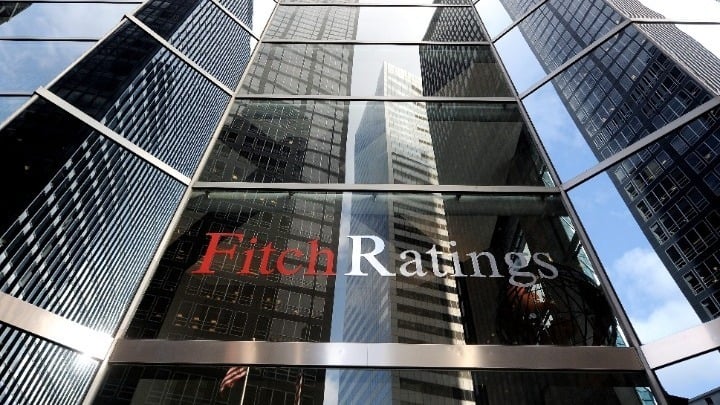

Fitch Ratings has revised the Outlook on Greece’s Long-Term Foreign-Currency Issuer Default Rating (IDR) to Positive from Stable and affirmed the IDR at ‘BBB-‘.
According to Fitch, Greece recorded a budget surplus of 1.3 percent of GDP in 2024 and a primary budget surplus of 4.8 percent, with the latter exceeding the government’s initial target of 1 percent.
This outcome is also better than Fitch’s expectations and marks a notable improvement from the 1.4 percent deficit in 2023. It also compares favourably with the current ‘BBB’ median deficit of 3.7 percent.
In Fitch’s view, the outperformance reflects structural fiscal improvements, notably better tax collection due to earlier tax measures, and tight expenditure control. Given this strong starting position, Fitch forecasts budget surpluses in 2025 and 2026, albeit below 1 percent. In April 2025, the government announced fiscal easing totaling 1 billion euros (0.5 percent of GDP) to boost investments and support pensioners and home renters.
The budget surplus and 2.3 percent real GDP growth led to a 10pp fall in gross general government debt to GDP in 2024, to 154 percent. Although still almost 3x higher than the ‘BBB’ median of 52 percent, this is over 50pp below the 2020 peak of 209 percent.
Greece has achieved the largest post-pandemic debt decline among Fitch-rated investment-grade sovereigns. Furthermore, cash buffers are high at around EUR36 billion (16 percent of GDP), sufficient to cover all debt maturities over the next three years. We expect the rapid debt decline to continue over the medium term, with the debt-to-GDP ratio approaching 120 percent by 2030 in our baseline.
The 2024 fiscal outturns underscore the government’s strong commitment to fiscal prudence, Fitch says.
The latest official fiscal projection, the May 2025 update of the medium-term fiscal plan, is fully aligned with the new EU fiscal framework. The cumulative growth rate of primary net expenditure in 2024-2025, the new key fiscal variable, was revised down to 4.2 percent from the 6.5 percent initial target.
“We view the government’s commitment to small budget deficits and steady decline in debt/GDP to be highly credible, underpinned by the record of the post-pandemic period,” the rating agency notes.
It adds that the New Democracy government has maintained strong public support since the 2023 elections. However, slow progress with the investigation of the February 2023 Tempi rail accident led to a new wave of public protests in early 2025. “Beyond the direct political implications, public discontent could put more pressure on the government to ease the fiscal stance more substantially.”
Greece has historically had higher defence spending than most EU peers, at close to 3 percent of GDP, according to the NATO definition. Therefore, there is less pressure to boost this expenditure, further limiting medium-term fiscal risks.
GDP grew by 2.3 percent in 2024, the same rate as in 2023, driven by domestic demand. Household consumption was supported by real income increases and employment growth, while buoyant investment growth continued, in part due to the stimulus from Next Generation grants and loans. Net exports had a small negative growth contribution, due primarily to the higher import content of investments.
“We forecast growth will remain above 2 percent in 2025 and 2026, well above our 0.4 percent eurozone growth forecast,” Fitch says.
“The direct risks for Greece from the global trade war are small, as exports to the US are only 4 percent of total exports, well below the EU average. Nevertheless, a more severe shock to major EU economies could have substantial adverse effects in Greece,” it adds.
